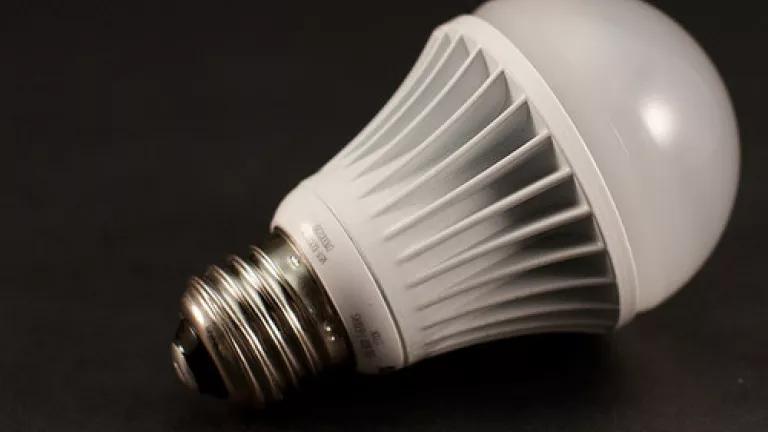
The International Energy Agency (IEA) just released its second annual Energy Efficiency Market Report 2014 confirming energy efficiency’s place as the world’s “first fuel” and estimating the value of the energy efficiency market at between $310 and $360 billion and growing. A related report released by IEA in September, Capturing The Multiple Benefits of Energy Efficiency, focused on its benefits beyond just reducing energy use and emissions, including overall sustainability, economic and social development, and increasing prosperity.
Both reports provide clear evidence of the enormous value of using energy smarter.
The Energy Efficiency Market Is Strong, Valuable and Growing
The new EE Market Report confirms findings from last year’s report (that I wrote about here) that the global savings from energy efficiency are greater than the output from any other single fuel source – including coal, oil, nuclear, and gas, making it the world’s first fuel. We’ve also written about how it is America’s Greatest Resource.
The EE Market Report makes a number of other impressive findings with regard to energy efficiency, including:
- Without improvements in the efficiency of cars, homes, heating, appliances and industry, total energy use in the 11 IEA member countries* would have been 60% more in 2012 – greater than the total energy consumption of the European Union or Asia (excluding China). Energy efficiency was the most important factor reducing energy demand.
- While energy prices have risen between 11% and 52% between 2001 and 2011, energy efficiency and increasing incomes have moderated the impact on households.
- Investment in efficiency was larger than supply-side investment in renewable electricity or in coal, oil, and gas electricity generation and around half the size of upstream oil and gas investment.
This is just small sample of the highlights. If you are interested in learning more, including country-specific findings, take a look at the report – or at least the summary.
Energy Efficiency Has Many (Mostly Unsung) Benefits
The Multiple Benefits report highlighted the fact that “Macroeconomists have stated that energy efficiency is the surest energy supply that exists.” Among just a few of its findings:
- IEA projections to 2035 show that as much as two-thirds of energy efficiency potential will remain untapped unless policies change. The report also noted the many barriers to investment that necessitate these policies, such as lack of information or financing.
- It listed at least 15 benefits of energy efficiency, including energy and greenhouse gas reductions, increased jobs, poverty alleviation, and increased health and well-being. The broader impacts have not been systematically assessed and better data is needed to calculate and communicate the full value of energy efficiency.
- The report recommended a multiple benefits approach that “could accelerate the shift of energy efficiency from its status as the “hidden fuel” to its emerging role as the “first fuel”.”
Both of these IEA reports strongly endorse the value and benefits of energy efficiency, our cheapest, quickest way to reduce the climate-changing pollution generated when we burn fossil fuels to produce energy.
Which is Why an October 8 New York Times Opinion Piece Was Puzzling
A NYT opinion piece “The Problem with Energy Efficiency” wrongly argued that energy efficiency advances only encourage more global energy consumption and cannot make much difference in curbing climate change. This is puzzling because numerous studies, including the two studies the authors themselves cite (and mischaracterize) – the IEA Multiple Benefits Study discussed above and a 2014 IPCC Working Group Report - and one they didn’t by NRDC, refute their claim that energy efficiency causes large “rebounds,” or increases in consumption.
If such a significant “rebound” existed, U.S. energy use growth rates would exceed those of our economy, but the opposite is true over more than three decades – thanks in large part to efficiency. In fact, the IEA and IPCC reports considered the “rebound” possibility and still overwhelmingly endorsed efficiency’s ability to cut energy use and pollution without stifling the standard of living for developing areas.
One example, thanks to Nobel Prize winners recognized this week, is the LED bulbs that sip so little energy they can be powered by tiny solar panels and replace kerosene lamps emitting harmful particulates. In short, energy efficiency -- combined with other clean, safe, renewable resources like wind and solar -- represent the best solution for eliminating the fossil fuel-fired power generation harming our planet.
The Message That Energy Efficiency Is Our First Fuel Is Clear
The message from both IEA Reports, the IPCC report is clear. Energy Efficiency has delivered the goods, and holds enormous additional potential to decrease energy use and emissions, increase jobs, and improve our economies and standard of living around the world. What are we waiting for?
* The 11 countries IEA examined are: Australia, Denmark, Finland, France, Germany, Italy, Japan, the Netherlands, Sweden, the United Kingdom and the United States.

